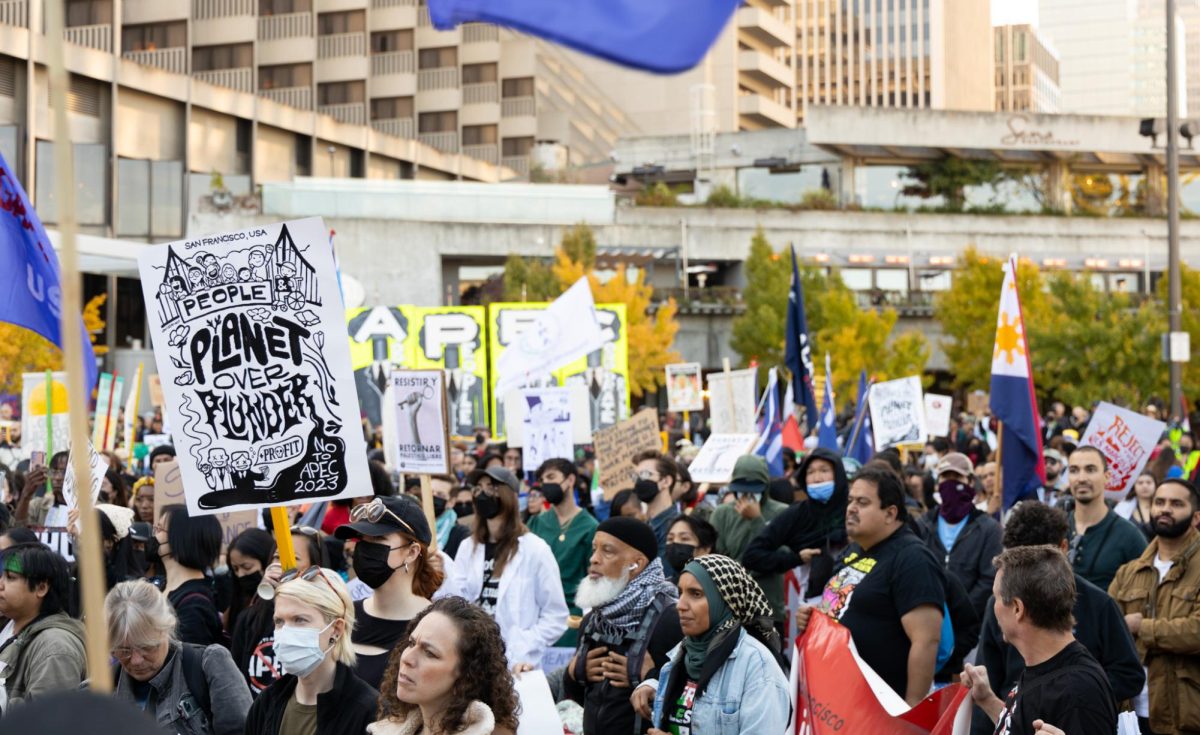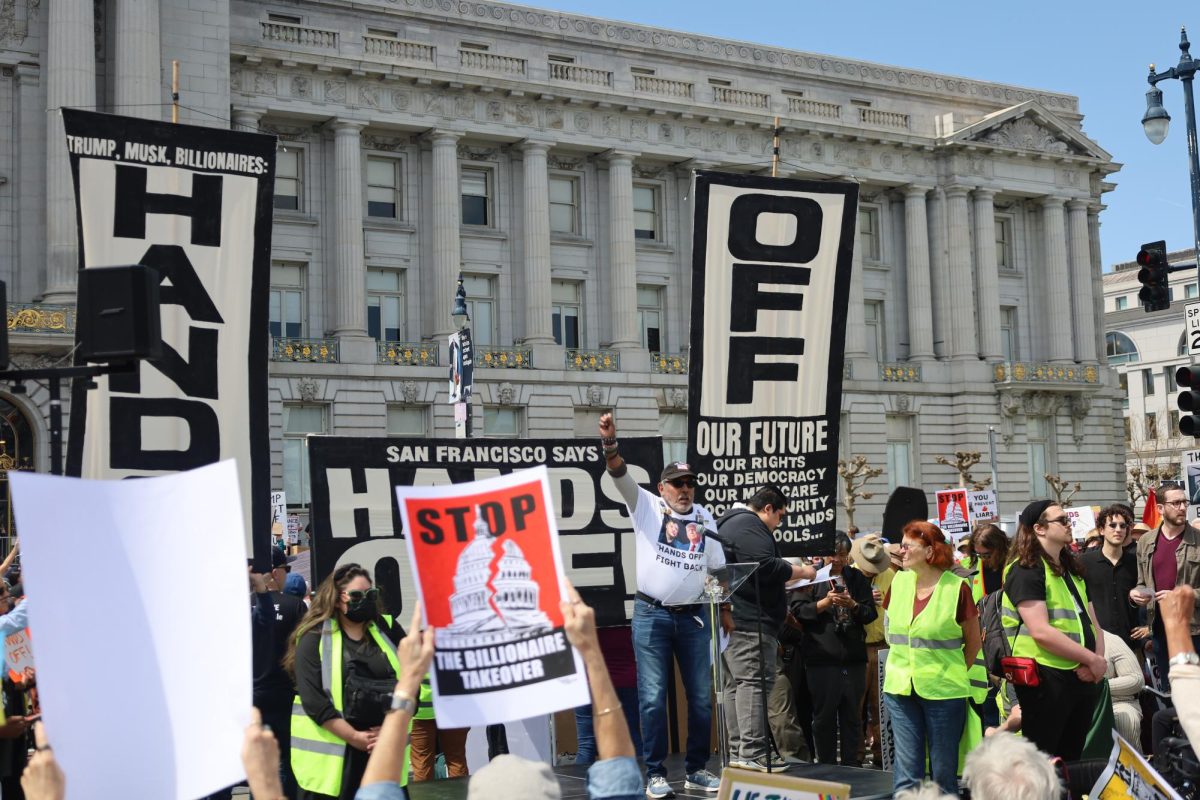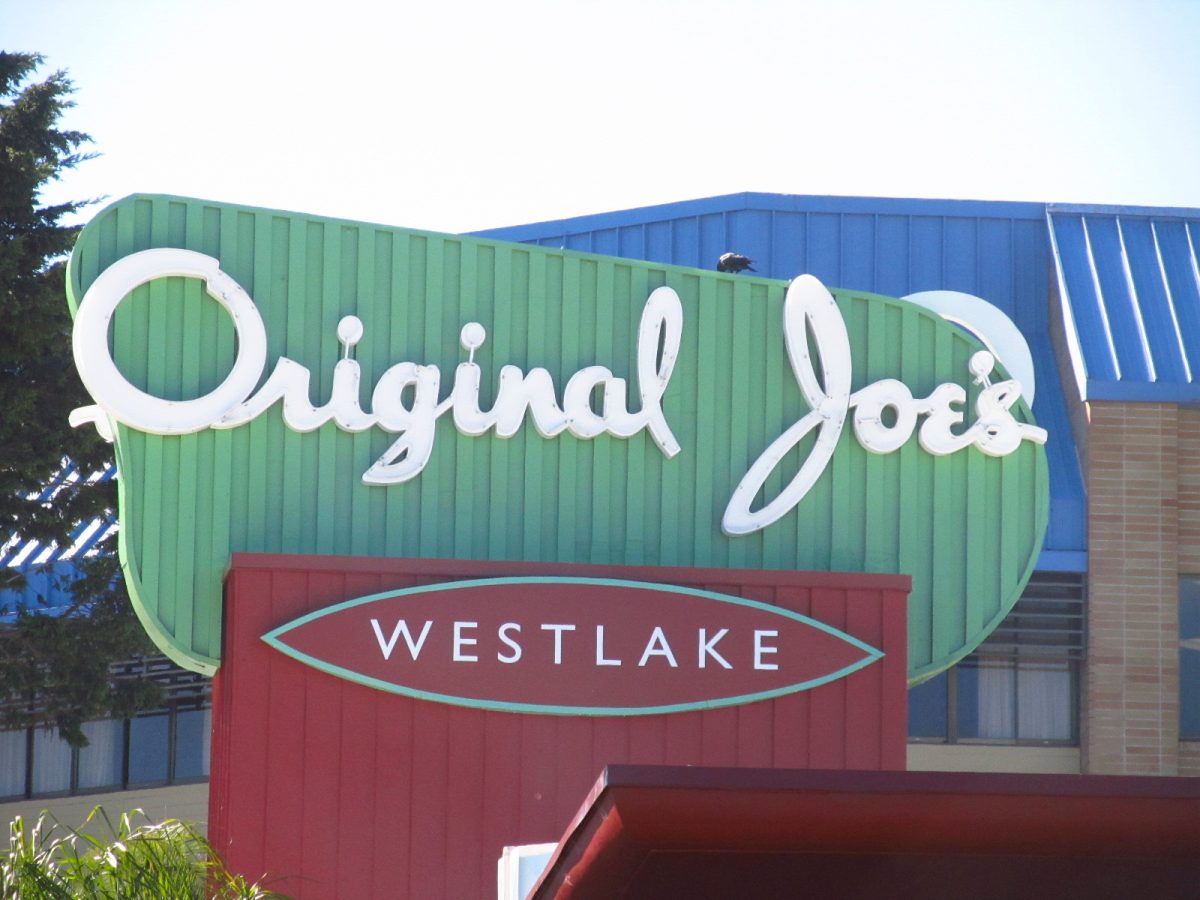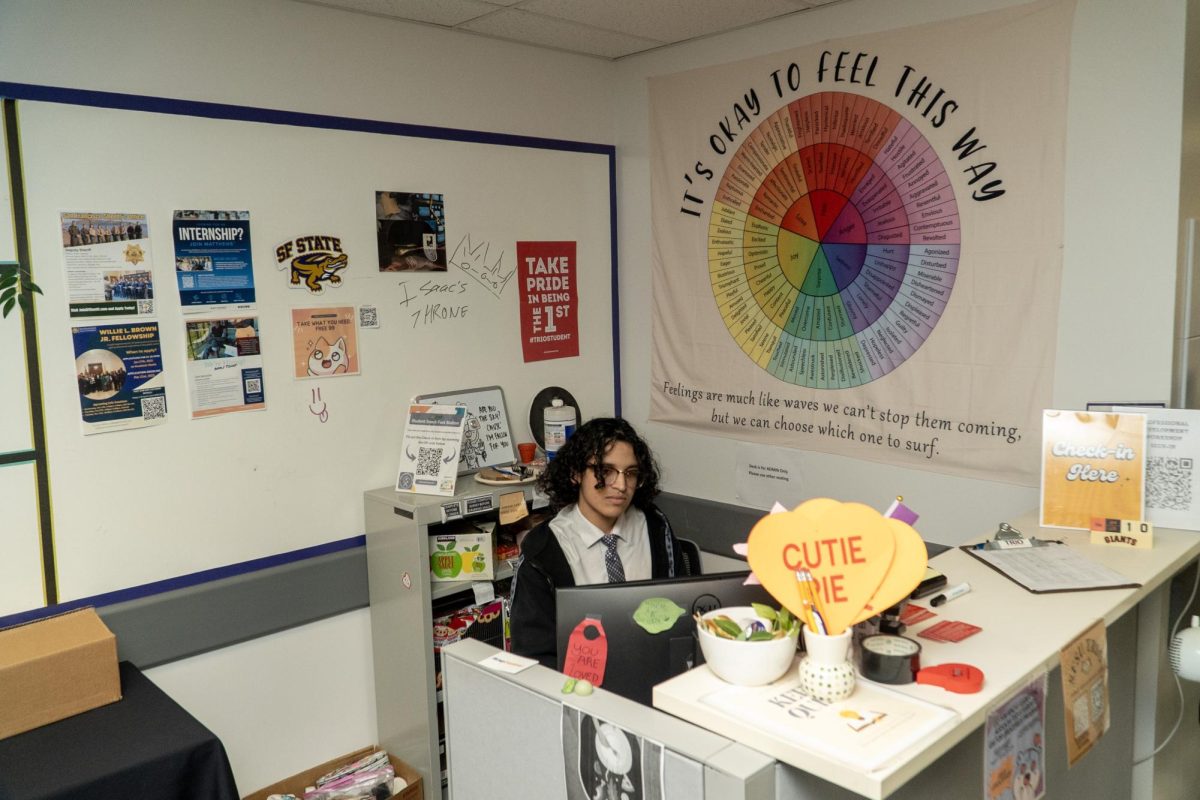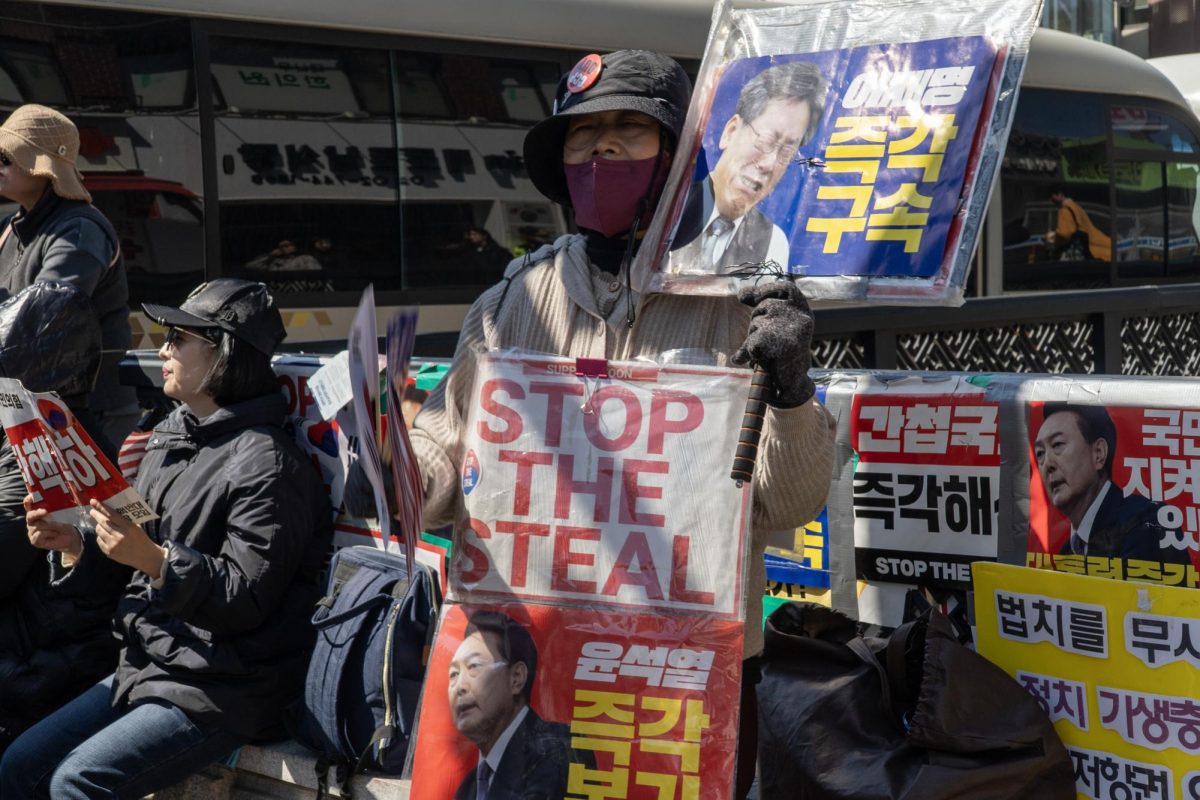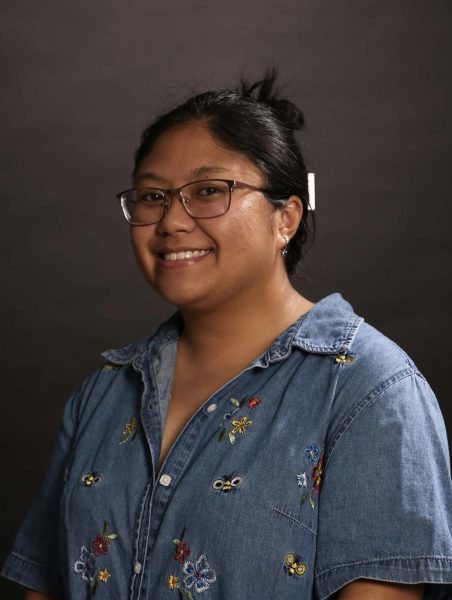Protestors from across the city rallied by Embarcadero station on Sunday in opposition to the Asia-Pacific Economic Cooperation summit, where business leaders and heads of state from 21 member economies are meeting from Nov. 11-17.
Chants of “People over profit,” “No to APEC,” and “Biden, Biden, you can’t hide — we charge you with genocide” rang through Harry Bridges Plaza as part of the rally organized by the No to APEC coalition, which is comprised of over 100 grassroots community organizations.
According to a press release from the No to APEC coalition, an estimated 10,000 people attended Sunday’s gathering and there are more protests planned for the duration of the APEC summit.
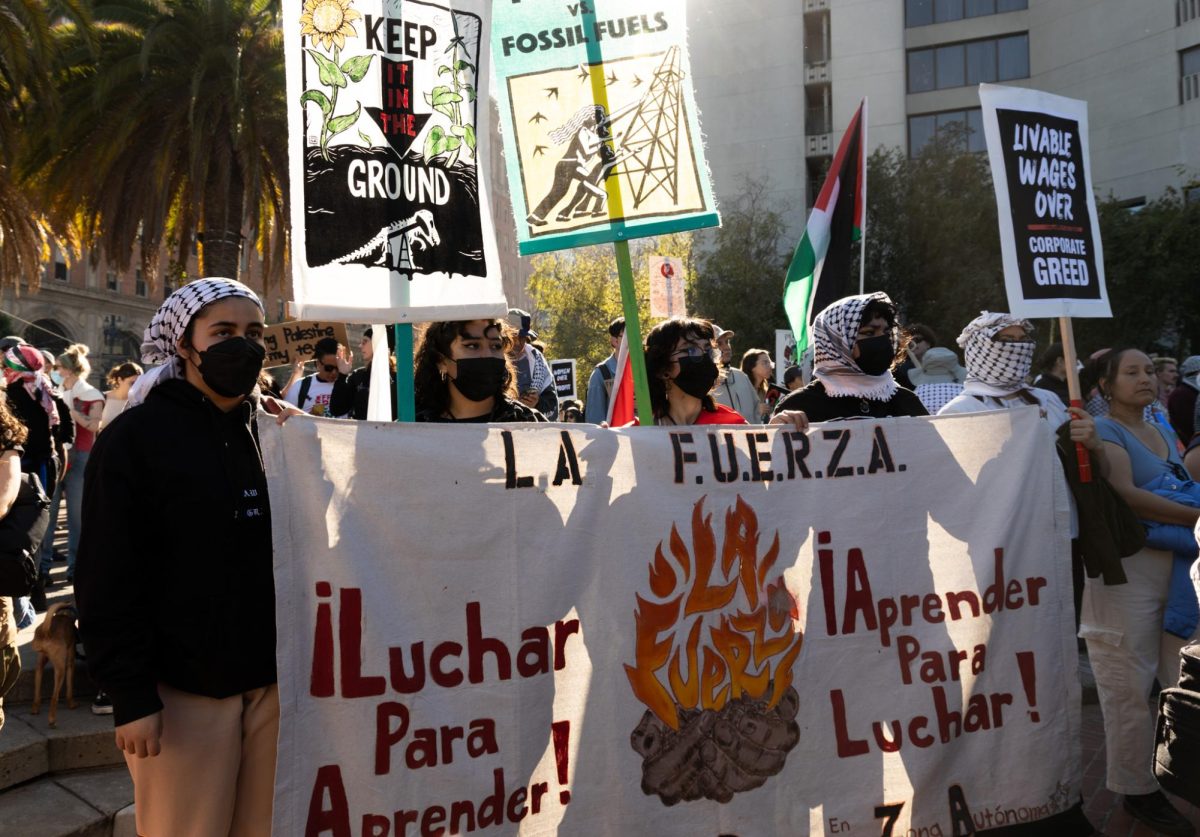
The Sunday gathering follows a Saturday counter-summit opposing APEC at San Francisco State University.
Organizers spoke about the ongoing Israel-Gaza conflict, deregulation of labor laws, militarization and the neglect of basic needs like housing and food.
“APEC is the epitome of all that is wicked and corrupt in our society today,” said Simon Ma –– a member of the Korean American group, Nodutdol –– while addressing the crowd. “A cabal of billionaires and politicians scheming behind closed doors trying to come up with new and innovative ways to further exploit the working class of our planet.”
APEC is a multinational organization that reaches across the Asia-Pacific region. Organizations like the Malaya Movement advocate for human rights, democracy and national sovereignty in the Philippines — all things that the organization claims are threatened by APEC deals.
According to member Rachel Lucero, Malaya Movement’s San Francisco chapter works with local Filipino-Americans, more specifically those in the South of Market Area.
Lucero said that poor working conditions fostered by APEC negotiations led to diminished workers’ rights, resulting in incidents like the 2015 Kentex factory fire, which killed 72 Filipino shoe factory workers.
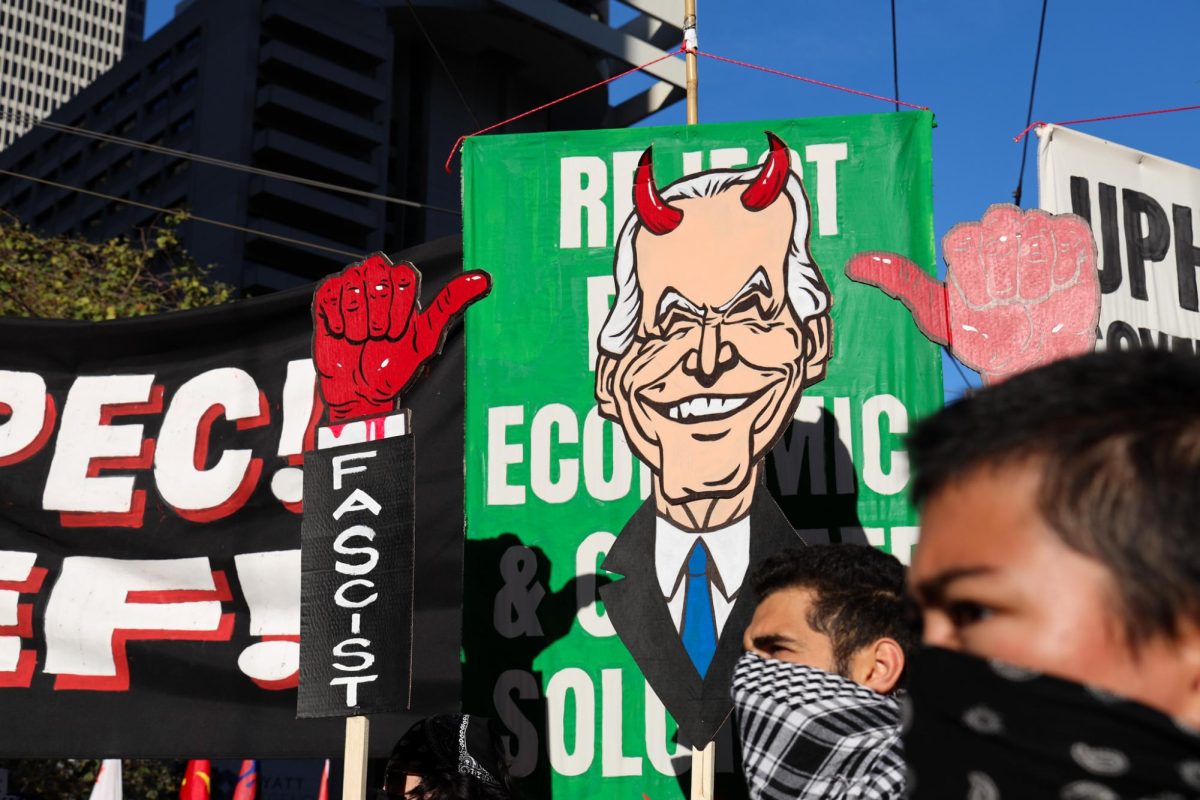
“These trade deals that are discussed at APEC only create conditions like that for our workers in the Philippines,” Lucero said.
While APEC is an organization of member economies across the Asia-Pacific region, many community organizers shared the sentiment that the decisions made at the summit affect working-class people worldwide.
Danza Azteca Xitatli is an Indigenous dance group that, according to member Gladys Aguilar, offers healing and medicine to communities — the group chose to attend the APEC rally to show solidarity, according to Aguilar.
“We are Indigenous people, so we obviously want to be in solidarity with people and what’s happening with APEC, but also what’s happening in Palestine; just being in solidarity with them, because it is a struggle for everyone,” Aguilar said.
Katherine General, the president of the San Francisco chapter of the Asian-Pacific American Labor Alliance, also emphasized the need for working-class solidarity across borders.
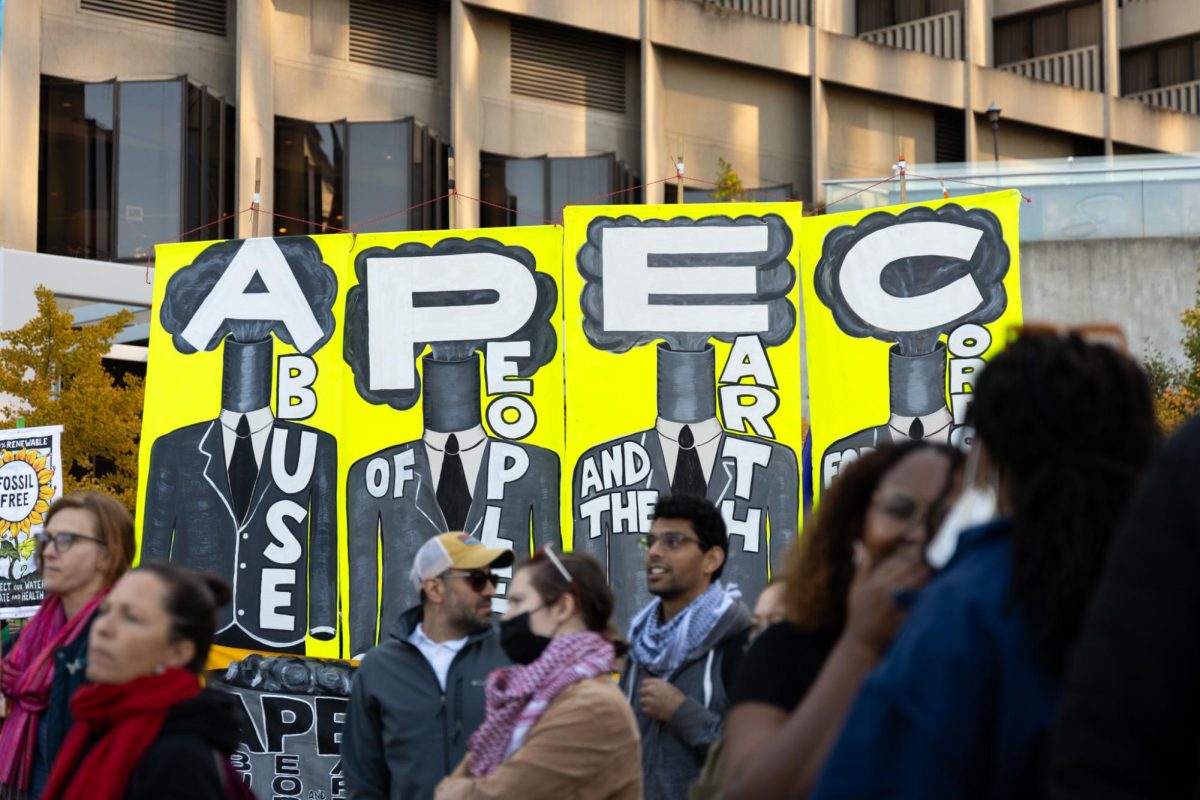
“In a global economy, workers really need to stick together. What happens to the workforce here, especially [a] unionized workforce, is gonna impact us,” General said. “We all need to stand together to lift the floor across the globe.”
Ultimately, a large portion of the protest detailed the ways various issues, many involving human rights, are affected by the actions decided at APEC — organizers named imperialism and militarization as two of the largest issues brought about by APEC deals.
“Imperialism is a direct manifestation of capitalism,” Ma said. “Capitalism is the society we live in where the billionaires rule over the working class and the never-ending pursuit of profit trumps overall. The only way to defeat imperialism abroad is by defeating capitalism here at home.”






